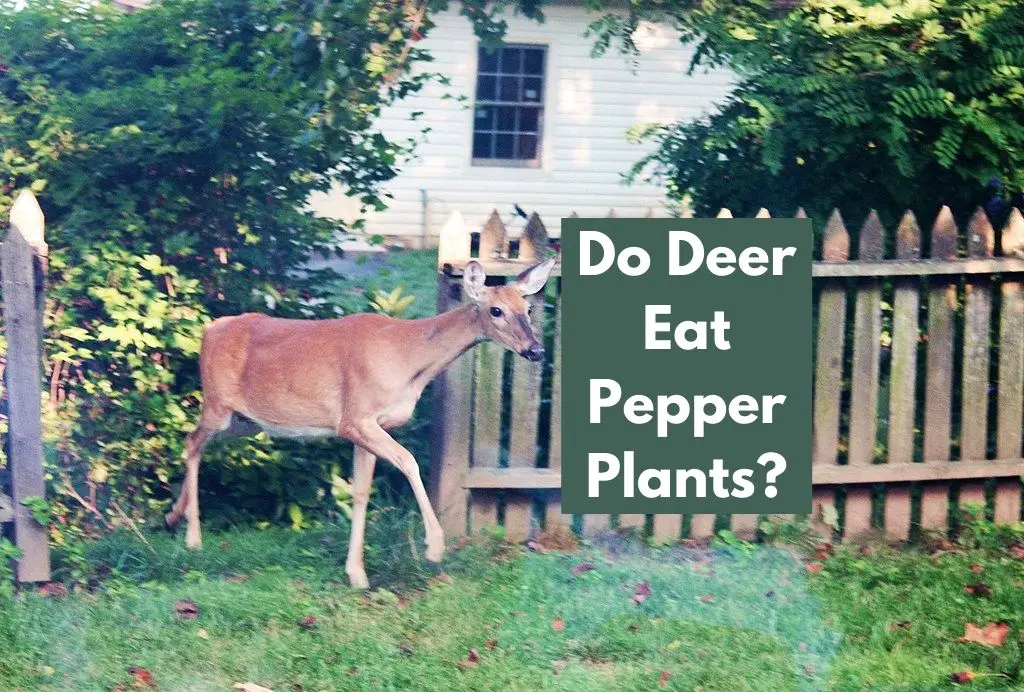There are a lot of myths out there about what deer do and do not eat. One common question is: do deer eat pepper plants?
Yes, deer will eat pepper plants. While pepper plants are not a major part of a deer’s diet, they will absolutely eat them if they’re hungry enough.
There’s a bit more to learn about deer eating pepper plants which we’ll cover in today’s guide. Read on for more info.
Why Do Deer Eat Pepper Plants?
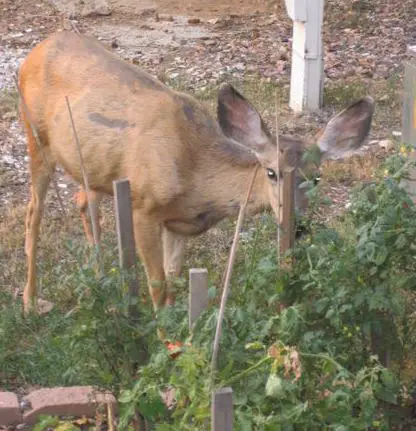
As we covered, deer will eat pepper plants when they’ve got the chance.
But why do they do this?
Well, for one, deer are browsing animals, meaning they’ll eat almost anything they come across if they’re hungry enough.
Your pepper plants are most susceptible to deer when there are fewer other food choices around for them, and especially when the peppers are young and the plants are tender.
Additionally, deer will consume a wide variety of foods like pepper plants based on opportunity.
If you’re not convinced, leave some peppers out for deer to eat (or plant some), and wait to see what happens!
Do Deer Eat Bell Pepper Plants?
We’ll have homeowners ask: do deer eat bell pepper plants, do deer eat green pepper plants, or another specific type they have on their property.
The short answer is, yes, deer will eat all types of peppers including bell pepper plants, hot pepper plants, green pepper plants, sweet pepper plants, and ornamental pepper plants if they’re hungry enough!
How Do I Keep Deer From Eating My Pepper Plants?
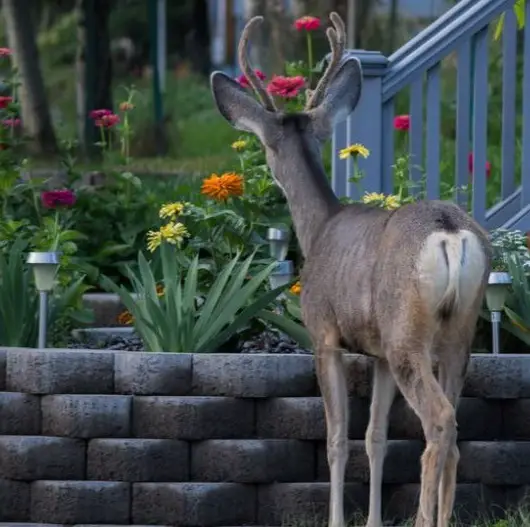
There are a few things to keep in mind when you’re protecting pepper plants from hungry deer: their habits, your scent, repellent options, and when you plant them.
Deer will eat nearly anything if they’re hungry enough, so your main goal is making your garden as least inviting to deer as possible.
Check out our guide on how to keep deer from eating plants where we cover 25 quick and easy tips for keeping hungry deer out of your garden.
Will My Pepper Plants Grow Back After Deer Eat Them?
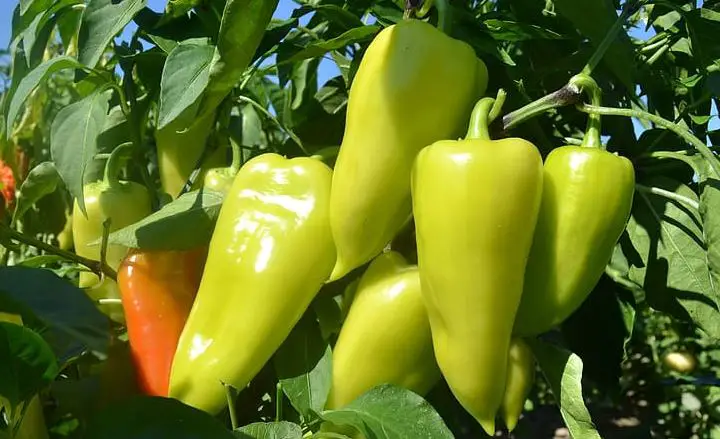
So a hungry deer snuck in your garden and had a feast on your pepper plants. Will they grow back?
Usually as long as the plants are healthy, they will continue to grow and produce new peppers from side-shoots.
Continue to care for your pepper plants including water and fertilizing until they’re back to good health.
If your pepper plants don’t bounce back after a few weeks, you’ll need to remove them and start new plants.
Are Pepper Plants Good For Deer To Eat?
Feeding deer pepper plants provides them with the following vitamins and minerals:
- Vitamin A
- Vitamin B6
- Vitamin C
- Vitamin K
- Vitamin B6
- Potassium
These vitamins and minerals provide deer with many benefits.
For example, vitamin C will help protect deer against scurvy and vitamin assists in deer immune system function.
Potassium is great for deer because it helps maintain good pH balance and aid in proper digestion.
Fat-Soluble Vitamins For Deer
Vitamins A, D, E, K, and calcium are fat-soluble, so they can be stored in the deer’s fat and liver to be used later as needed.
This means that vitamin A content from deer eating pepper plants can be “stored up” for later use, which is highly beneficial.
Water-Soluble Vitamins For Deer
Vitamin C, B Vitamins, niacin, folic acid, and potassium are all water-soluble, which means they cannot be stored, so they must be replaced continually.
So a deer that eats pepper plants for the vitamin C content must continue to consume foods that contain these necessary vitamins to stay healthy.
How To Feed Peppers To Deer
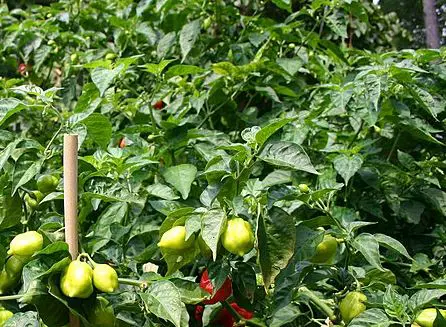
Most gardeners and veggie growers want to keep deer away from their pepper plants.
If you have extra pepper plants or are looking to see if you can feed peppers to deer, this next part is for you.
There are a few things to keep in mind when feeding deer pepper plants: the size of the portion, your scent, and how many deer you’re feeding.
Make sure to place the peppers on the ground where they’re visible and can be easily reached by deer.
If you’ve got a winter food plot with pepper plants growing in it, the deer will eat them right out of the ground.
If deer are not normally around your area in winter, don’t feed them leading up to winter as they will not migrate where and when they should.
This will lead to the deer relying on you as their food source and can result in starvation.
Should I Cut Up Pepper Plants For Deer To Eat?
If possible, slice the peppers in to 1″ or 2″ strips to make it easier for the deer to eat them.
Pepper plants are high in fiber which can be tough on deer to digest in large quantities.
Don’t Leave Your Scent On Deer Food
Deer have a keen sense of smell that allows them to smell human scent farther than bloodhounds can, and can smell up to six different scents at once.
Deer won’t eat food like pepper plants if they have a strong human scent on them, so you should take care to minimize your trace.
You can do this by rinsing the peppers and also washing your hands with antimicrobial soap.
Alternatively, you can put a few drops of apple cider vinegar on your hands when handling food you’ll be giving to the deer.
Another easy option is to use gloves when handling pepper plants for deer to eat.
Consider The Amount Of Deer You’re Feeding
If you have lots of deer in your area, think twice about putting out food continuously for them.
If you bring deer together at the same feeding site, it can increase their risk of contracting chronic wasting disease or other communicable diseases from each other.
Do Deer Eat Pepper Plants? Wrapping Things Up
So, do deer eat pepper plants?
The answer is yes!
Although peppers aren’t a deer’s first choice, they’ll definitely eat them if they’re hungry enough.
Deer will eat different types of peppers and pepper plants including green peppers, sweet peppers, bell peppers, and even hot peppers.
Fortunately there are many methods you can use and combine to keep deer away from your precious pepper plants.
Try a few and see what works best for you.
Have any observations to add to the discussion? Be sure to let us know in the comments below.
Check our our other helpful wildlife guides while you’re here:
Check our our other helpful wildlife guides while you’re here:

